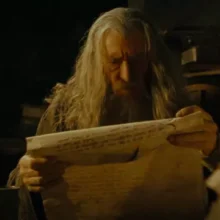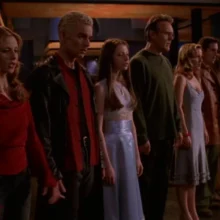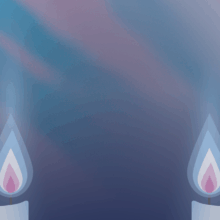The lonely work of memorializing trans neighbors.
One of the worst moments as a blogger is when I publish a post memorializing a trans neighbor, take a breath and realize I have to write another one. That always hurts.
Each time this happens, I take a breath and let it out, feeling the fury and anguish wrapped around my heart. Sometimes, I have to walk away for a few hours or days. Sometimes I let out that breath and start writing.
This is difficult work, a fact that should surprise no one. Is isn’t a defined job, people do the bits and pieces they can. Some create TDOR memorials, others keep databases updated, still others lead search parties. There’a lot of room to get involved without succumbing to the anguish.
i’ve noticed that traditional LGBTQ+ media outlets have reduced reporting on anti-trans violence. That’s horrifying. My sources tell me that these outlets want to report more ‘happy’ stories. That’s transphobic erasure and I cannot abide it. The trans community has asked us to ensure visibility, awareness, and true stories.
On a personal level, I feel abandoned by these folx abdicating their responsibility. Far too many times, I’ve heard “Oh Sue Kerr does that” like this is a special sort of niche writing. Shame on them.
But I’ve been writing these memorials for 12 years now. I’m part of a Facebook group where people who do this work come together to share information. Like many Facebook groups, a handful of people – including yours truly – do a lot of the talking.
And listening. That’s what led me to establish the Trans and Queer Media Project, when I learned about a gap that needs to be addressed. The gap is small – paywalls for media outlets. Researchers like me often need to do a deep dive into local media and paywalls are a challenge when you are self-funded.
I thought “what if we funded access through the paywalls to researchers?” The local outlet wins because they need the money. We win because we don’t expend energy trying to find a work around. We can establish relationships with the journalists, editors, and publishers – as paying customers.
It isn’t exhausting, just a little administrative work – set up an account and provide login credentials where needed. Remember to end the subscription, of course. Share credentials between multiple researchers.
And while we are there, we can document what is being reported, the journalists who get it right and those who can get there.
There aren’t a lot of downsides to trying. The worst someone can do to abuse a login is …read? Or not do anything which would be unfortunate.
I’m hopeful the big outlets will donate full subscriptions, especially if they want people to read. I’ve found that many small outlets will extend subscriptions for 6 months for $.99 or less. So we can probably move the needle on people reading truly local coverage on trans and and queer issues.
Beyond informing out work, this data can be shared with HRC, GLAAD, PFLAG, etc. They can get a better glimpse of the reporting. GLAAD can help raise the bar. PFLAG is always on the frontlines – I know many people who will in fact drive several hours every month to go to a PFLAG meeting once they learn about them.
GLAAD is our first funder. We have asked the others and if it is successful, maybe we’ll do a crowdfund to keep going from here.
Maybe we’ll find other ways a project like this – informed by the researchers from around the world – can help. Expand into Central and South American media outlets. South Africa. Eastern Europe.
If you are fluent in any language, we can use your help.
Maybe our work can provide the content they publish so they can dedicate their obviously diminishing resources on other types of stories, but still report solid information on a plague in our community. A different plague. But we know how that goes.
I’ll write a more thoughtful post on this project soon.
Because remember when I wrote “One of the worst moments as a blogger is when I publish a post memorializing a trans neighbor, take a breath and realize I have to write another one?”
That’s literally true. I need to look into the death of a 24 year old intersex American citizen who died after several months in an immigration detention center in the Dominican Republic. Their name was Ezra, they were detained for being homeless and trespassing, they were raped reportedly 15 times over two months. That post will be up tomorrow.
This is very lonely work in spite of the amazing people who do it. Diving into a seemingly endless stream of tragedy, reading about the worst of our neighbors and then meeting them again in the comments section. Trying to sleep with some stories embedded in your soul. Wanting to share, but feeling so so so aware of the similar pain other researchers carry. I am very fortunate that one of my therapists is very well informed.
It isn’t about centering my feelings, but acknowledging that I have them. How can you watch trans youth and trans people in general be treated with such contempt and violence and not feel something? A lot of things. We are losing so many beautiful people, especially young people who don’t find beauty in being lonesome. And don’t deserve to do so.
The gaps won’t fill themselves. Look around your community, listen to trans folx, and step up.
Hear that lonesome whippoorwill
He sounds too blue to fly
The midnight train is whining low
I’m so lonesome, I could cry
I’ve never seen a night so long
And time goes crawling by
The moon just went behind the clouds
To hide its face and cry
Did you ever see a robin weep
When leaves begin to die?
Like me, he’s lost the will to live
I’m so lonesome, I could cry
The silence of a falling star
Lights up a purple sky
And as I wonder where you are
I’m so lonesome, I could cry
I chose this cover of a beautiful classic song about being lonesome, the 18 year old pansexual queer Irish guitarist Muireann Bradley.







